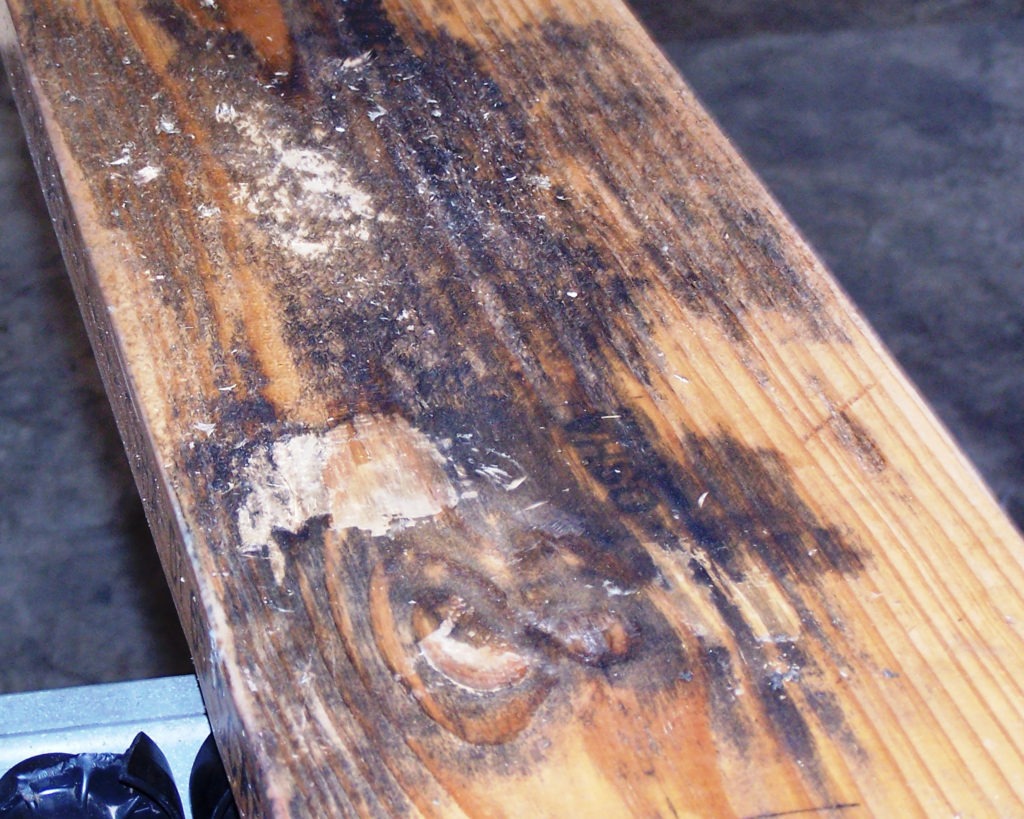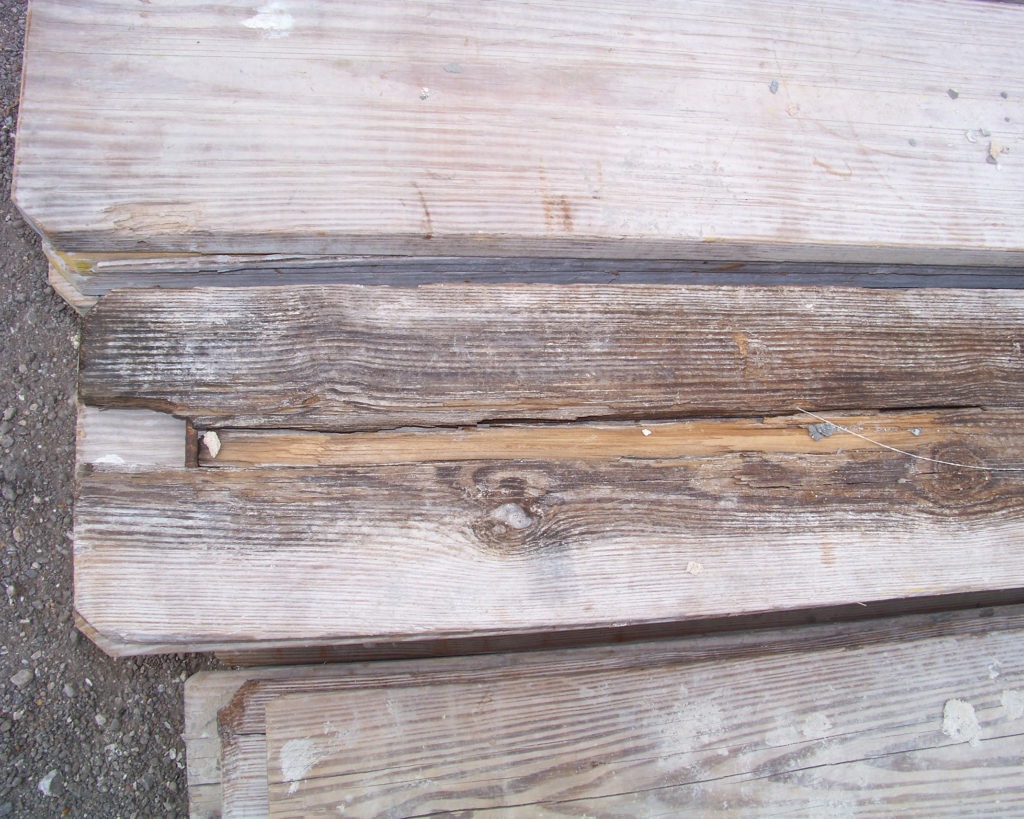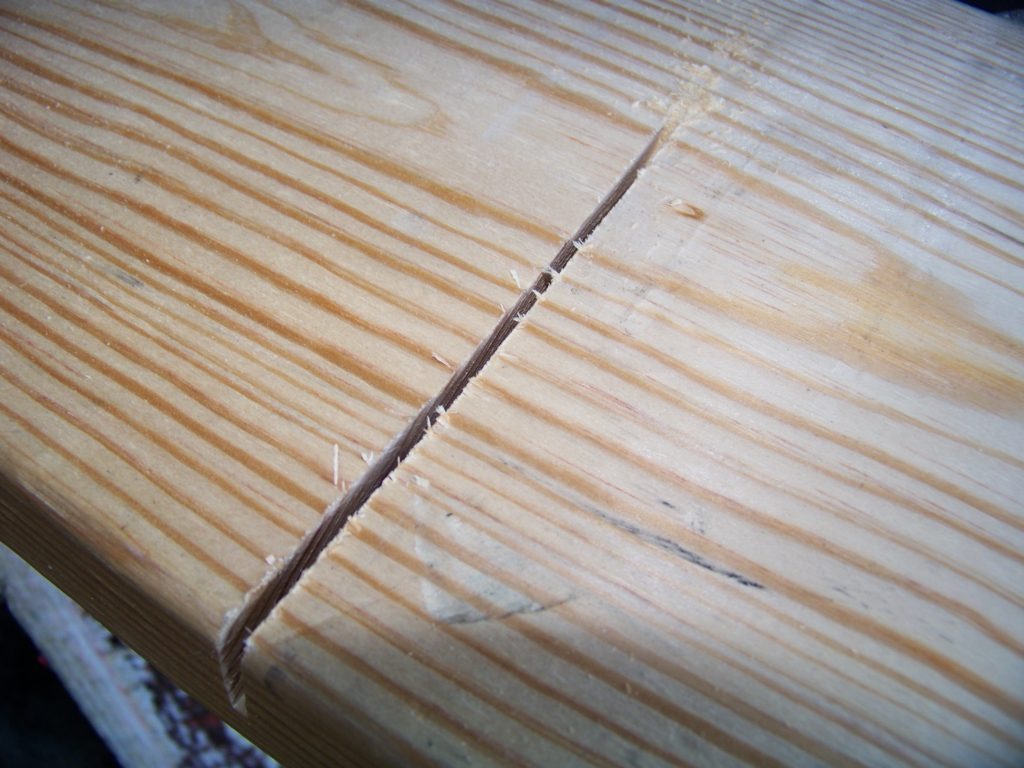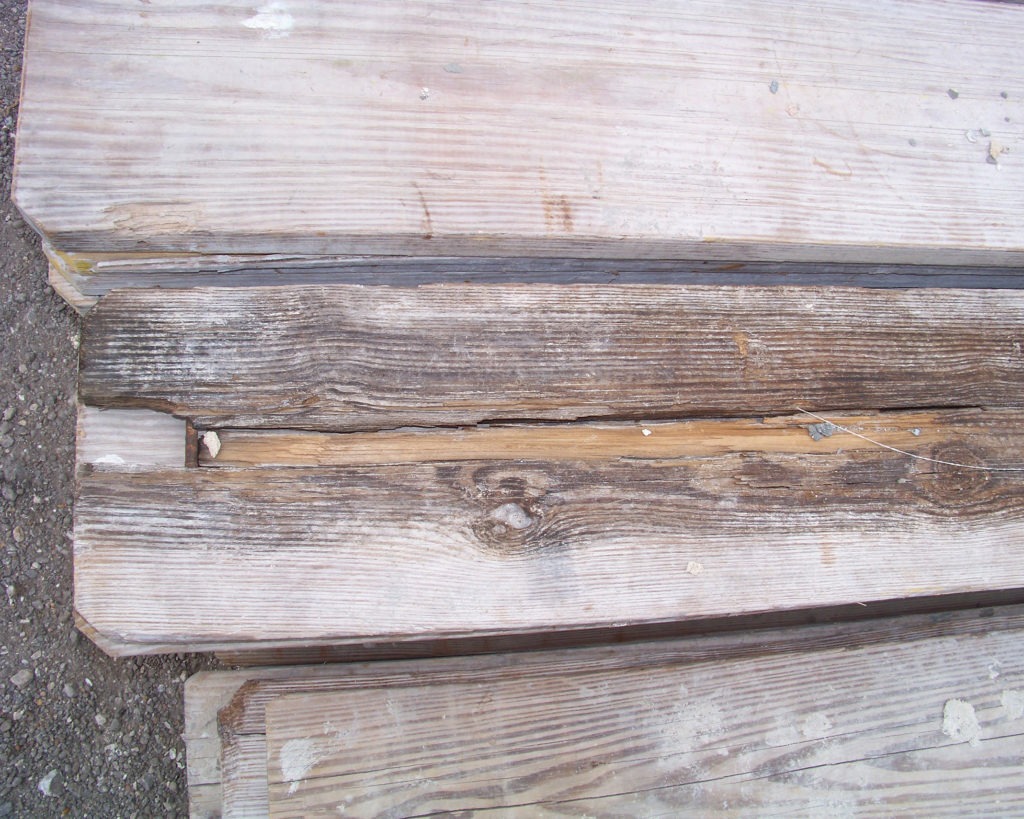Scaffold Plank Height Safety: Understanding Board Wear and How to Prevent It
Words: Patrick Gajewski
Words: Patrick Gajewski & Michael Alley of Indian Mill Plank
Photo: Derick Hudson
What to look for when evaluating your scaffold plank inventory for the next job
Wood scaffold plank takes many forms in the United States and across the world. Indian Mill buys southern yellow pine from the Southeastern United States to manufacture wood scaffold plank, but wood scaffold planking can also be made from laminated veneer lumber. Each part of the United States is unique, and a region’s environment can drastically change the expected life of wood scaffold plank. In general, wet and humid environments decrease the shelf life of wood scaffold plank. Both solid wood and laminate veneer lumber (LVL) scaffold plank are susceptible to wet conditions, with both types experiencing rot and LVL at risk of delamination. Is your scaffold plank ready for the next season of work? Do you know what to look for to determine if your scaffold plank is in reasonable working condition? Before you head to the next job, these guidelines will help you determine if your plank is safe or if you need to retire it from service.
Plank Damage and its Many Forms
Like all wood and plant fiber products, scaffold plank is subject to decay and damage. Water is the number one enemy of wood. Boards that do not dry properly are at risk of rot. Telltale signs of rot include discoloration and lighter weight than standard boards. A lightweight board with a standard-looking exterior may indicate that rot occurs inside a scaffold board’s wood fibers. Chemical exposure can also result in board rot, including oxidizing acids and caustic mixtures like mortar and concrete. Sun exposure and significant temperature swings may cause wood scaffold plank to crack, split and warp. Indian Mill installs a twisted steel screw perpendicular to the board face near the solid wood scaffold plank ends to reduce the risk of cupping and splitting. Finally, board damage may also be caused by human use (“caused damage”), including during transportation such as unloading and loading with a forklift or poor handling. “Caused damage” often translates to board splits and fiber tears to the board faces.

Visual Inspections and Choosing Good Boards
After each job, a visual inspection of wood scaffold boards is highly recommended. This may not be the most efficient use of time. Still, it could save you significantly when it comes to purchasing additional wood scaffold plank stocks and reducing the risk of a potential liability issue at the jobsite. According to OSHA height safety standards, some plank damage may require inspection by a qualified or competent person. A qualified person is someone in possession of a recognized degree, certificate, or professional standing or who, by extensive knowledge, training, and experience, has successfully demonstrated the ability to solve or resolve problems relating to the subject matter, the work, or the project. A competent person can identify existing and predictable hazards and has the authority to take prompt corrective measures to eliminate them. A visual inspection for a board involves looking for a few key things: end splits, warping, narrow face splits, face breaks, saw cuts, notching/drilled holes/dents/depressions, and rot.
End Splits
End splits are separated from the wood through the piece to the opposite surface due to the wood cells’ tearing apart. End splits are the result of repeated wet/dry cycles and handling abuse. An end split does not necessarily weaken a scaffold plank. One maximum allowable end split is permitted on each end of a scaffold plank, but a qualified or competent person must approve. An end split is repairable if it is less than twelve inches for nine-foot-long or fewer scaffold planks and eighteen inches for planks between ten feet long and sixteen feet long. An end split can be repaired using banding to keep the split from growing. Alternatively, a board may be cut back to eliminate the split. Cutbacks must be done carefully and should retain the lumber grading stamp and follow other board wear guidelines. If a board is deemed non-repairable, it should be removed from service.

Warping
Warping is any deviation from a true or plane surface. Different types of warping include bowing, crooking, cupping, and twisting. Bowing is any deviation flatwise from a straight-line drawn end to end. Crooking is a deviation edgewise from a straight-line drawn end to end. Cupping is any deviation in the face of a plank from a straight-line drawn edge to edge. Twisting is any deviation flatwise or a combination of flatwise and edgewise in the form of a curl or spiral. The assistance of a qualified and competent person is suggested in identifying these issues. Frequently, allowing the plank to dry more thoroughly can help correct these misalignments, especially in cupping. When the issues exist and present a potential tripping hazard, workers should remove the plank from service.
Narrow Face Splits
Narrow face splits are open splits on the plank’s narrow face caused by handling abuse, forklift damage, or overloading. Narrow face splits are likely to result in board rot when exposed to the elements. Diagonal splits are likely to be accompanied by face breaks. It may be necessary to use a thin, stiff probe to distinguish a split from a shallow weathering check. Workers should remove planks with open splits on the narrow face from service.
Face Breaks
Face breaks include a break on the wide face and are usually the result of overloading the plank. This results in a dangerous loss of strength. Workers must remove any board with a face break from service.
Saw Kerfs
Saw kerfs, also known as saw cuts, may be found on the face or through a plank’s edge. A saw kerf across the plank face effectively reduces a plank’s thickness, severely reducing plank strength. Saw kerfs could only be repaired by sawing off and eliminating the portion with the saw kerf.

Notching/Drilled Holes/Dents/Depressions
All of these found on the scaffold plank are the result of human action. Some people may notch the end of boards to work around unique obstructions, such as pipes. This reduces the effective width of a plank and, therefore, a plank’s load-carrying capacity. Drilled holes can be found for many reasons, but these often result in an area prone to rot. Dents and depressions can be caused by boards falling or a heavy object falling on a plank. Also, careless forklift operations may result in dents and depressions. Regarding notching and drilled holes, consult a scaffold designer when notches or drilled holes are required in plank. To reuse a plank with notching, drilled holes, dents, or depressions, saw off the portion of a plank that has the damage and removes that portion from service.
Decay and Rot
All wood-based scaffold planks are susceptible to decay and rot. Rot may occur because of water exposure, chemical spillage, or insect attack. Wood knots can be sources for rot to occur. Be aware of loose or broken wood knots as this decreases a board’s effective width and reduces a plank’s load-carrying capacity, similar to notching or drilled holes. Do not use a scaffold plank on a previously used scaffold as a walkboard across the wet, muddy ground. Decay will occur when the wet plank is stored improperly or has prolonged contact with the ground. Workers should remove any planks displaying contamination, soft spots, and insect holes from service.

Proper Plank Storage
When not in use, a collection of scaffold planks should be stacked to allow airflow to help dry boards, reducing prolonged periods of wet exposure. A sticker, piece of 1x1 wood, or similar sized piece of wood set across the board face will allow airflow while permitting additional levels of boards to be stacked on top. If the sticker is 48 inches long, then five boards may be lined up side by side with stickers placed across the board width at various points but at least 4 inches from each end and every three to four feet across the length of the board. Another level of five boards may be stacked on top of the stickers, with the process repeated several times. It is recommended not to exceed ten levels of scaffold plank in a single bundle. The scaffold planks can be strapped and set aside in a dry storage area. Avoid leaving scaffold planks in tight bundles and exposed to the elements. This will result in premature deterioration and a need to replace the scaffold planks.
Be Prepared for Next Season
These guidelines will help you evaluate your scaffold plank inventory and may even save you money. However, these are not all-inclusive, nor should they replace other additional safety or preventive measures. Every company wants its equipment to last as long as possible, but when heights are involved, safety should be paramount. Please contact Indian Mill Plank at 281-970-0773 or a qualified wood specialist if you have questions or concerns.